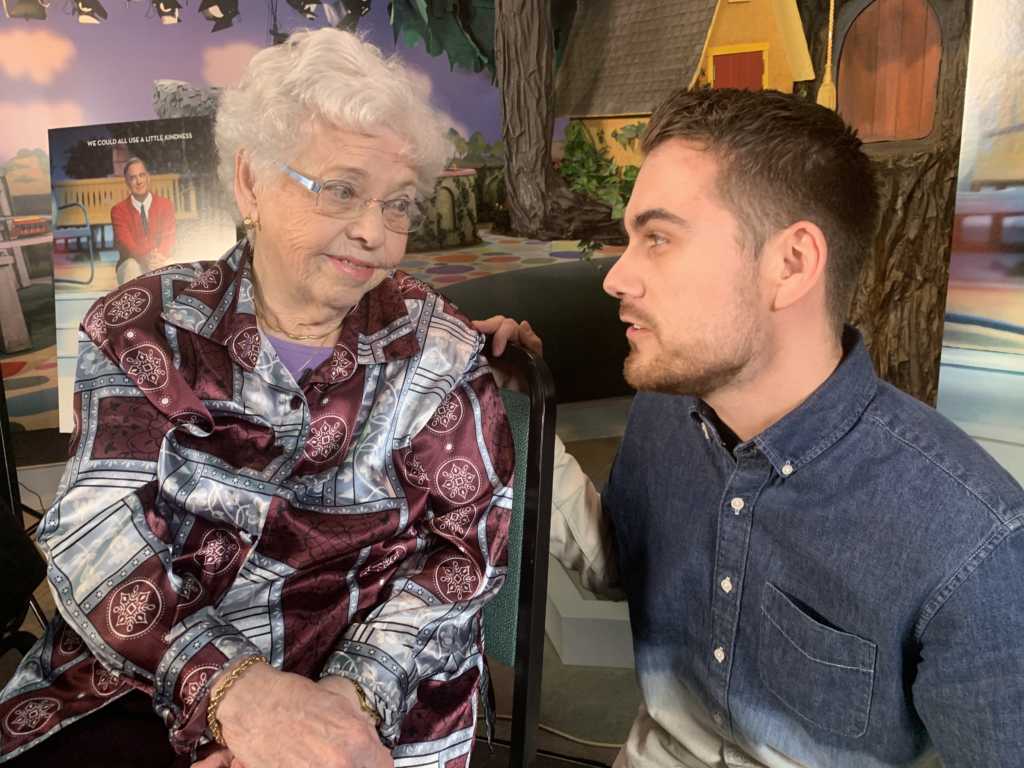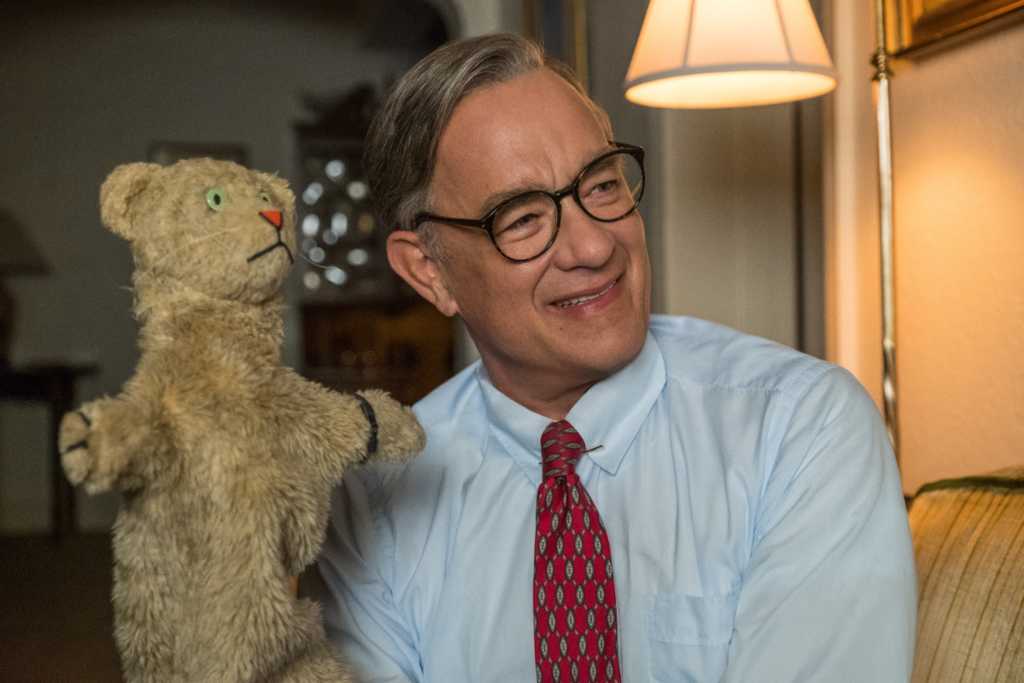Mister Rogers was a minister who made loving his neighbor his mission.
“A Beautiful Day in the Neighborhood,” which debuts nationwide Friday, isn’t a traditional faith film with cookie-cutter Scripture references and a soundtrack of popular Christian music. Instead, it tells the story of a man whose soft-spoken disposition loudly communicated the principles of the Bible.
Though quiet by nature, Rogers’ faith clearly reverberated through the halls of his life, both when the cameras were rolling and when they were turned off. That became evident to me when I spoke with his wife, Joanne, who said her late husband, an ordained Presbyterian minister, “was magical” when he stood behind the pulpit to preach — something he did on occasion at Sixth Presbyterian Church in Pittsburgh, where Rogers recorded “Mister Rogers’ Neighborhood” from 1968 until 2001, just two years before the beloved host died of stomach cancer.

“His ministry meant a lot to him,” she told me, after earlier saying her husband saw his work on television as “a ministry.” And Rogers’ longtime friend and manager Bill Isler, who now serves as CEO of Fred Rogers Productions, said Rogers would often call the space between the TV screen and the children sitting at home watching his show “holy ground.”
To Rogers, that was the place where ministry happened.
The legacy of ministry Rogers began in the late 1960s is still very much alive and well today. It’s clearly on display in “A Beautiful Day in the Neighborhood,” which stars Tom Hanks as Rogers.
One of the most moving scenes in the entire film is the minute-and-a-half moment of silence as Hanks (playing Rogers) asks the Esquire journalist interviewing him, Lloyd Vogel, portrayed by Matthew Rhys, to reflect with gratitude on the people “who loved you into being” as the two men sat across from one another in a booth at a crowded Asian restaurant.
For nearly two minutes, right in the middle of the movie, there is complete and utter silence — a space to be filled with quiet reflection and grateful prayer. According to Isler, that was something Rogers did often. In fact, he did it in 1997, when he accepted the Lifetime Achievement Award at the Daytime Emmy Awards ceremony.
In that moment, I felt as if Rogers was ministering directly to me.
I was reminded of his constant call for love in his “neighborhood.” The scene called to memory the New Testament passage of Mark 12:31, more commonly known as “the golden rule.” The verse reads, “Love your neighbor as yourself.”
That is exactly what Rogers did throughout his life. The movie is based loosely on the relationship the Latrobe, Pennsylvania, native had with real-life journalist Tom Junod, whose essay about Rogers for Esquire in 1998 inspired the new film. For years, Junod and his wife struggled with infertility. It was ultimately his relationship with Rogers — and the deep faith the entertainer had — that inspired Junod and his wife to adopt their daughter Nia less than a year after Rogers passed away.
Hopefulness and love were contagious to those who spent time with Rogers.
There’s no doubt he saw the innate value in human life. Each one of us is capable of kindness and humility, grace and strength — not because it comes naturally, but because we are endowed with the tools necessary to work at it, to make ourselves better people. Though we’re imperfect, we are created in God’s image and able to call those qualities to the forefront, if we allow the Holy Spirit to do that work in our lives.
Rogers may have had a quiet temperament, but his mission to love his neighbors was a bold, radical one. And it’s a mission we desperately need others to continue today.
Joanne Rogers told me she is confident “there are many Fred Rogers out there.”
“I hope they’ll come forward and just be there for everybody — the hopeful people of the world,” she said. “Let’s all be hopeful!”



